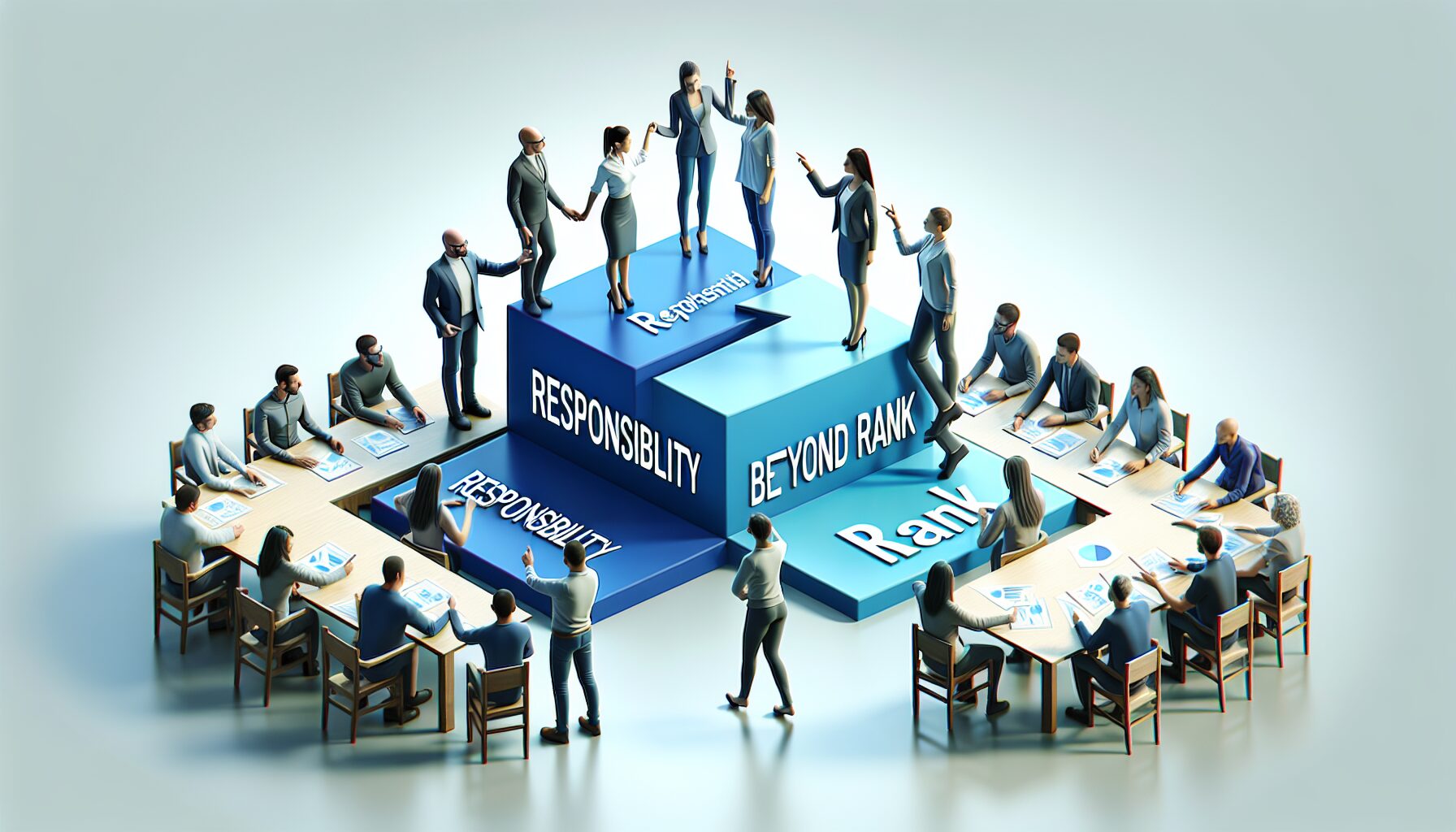Responsibility Beyond Rank: Moral Accountability Without Hierarchy
In the complex web of organizations, accountability often trickles down through ranks, with the higher-ups calling the shots and the lower ranks executing them. But is responsibility truly tethered only to hierarchy? The increasing dynamism and autonomy of modern workplaces invite a deeper examination into moral accountability beyond rank.
The Traditional Model of Accountability
Traditionally, accountability in organizations has been closely linked with an individual’s position in the hierarchy. A Harvard Business Review article points out, “Responsibility without authority is a recipe for frustration and limited impact.” In many organizations, the decision-making power rests with those at the top, while the responsibility to implement those decisions flows downwards, often without proportionate empowerment.
The Growing Need for Moral Accountability
However, organizational dynamics are rapidly changing. With a rise in collaborative work cultures, flexible roles, and the gig economy, the need for individual moral accountability is becoming ever more critical. The question emerges: how can organizations foster a culture where moral responsibility is shared irrespective of rank?
Empowering Individuals
To cultivate a culture of shared accountability, organizations can take several steps:
- Encourage Open Communication: Create channels where voices from all levels can express concerns and ideas. This not only democratizes decision-making but also instills a sense of responsibility in every employee.
- Foster Ethical Leadership: Leaders must model ethical decision-making. As noted by Kellerman in her book, The End of Leadership, ethical leadership is not about having the answers but about fostering an environment where ethical concerns are openly discussed.
- Provide Continuous Education: Continuous training and workshops on ethics and moral responsibilities help employees at all levels understand the broader impact of their actions.
Case Studies of Moral Accountability
Many organizations have recognized the importance of moral accountability beyond rank. Consider the example of Patagonia, a company noted for its commitment to environmental responsibility. All employees are encouraged to participate in sustainability initiatives, reinforcing moral responsibility at every level. According to their mission statement, “We’re in business to save our home planet,” this encapsulates moral accountability beyond traditional roles.
“Build the best product, cause no unnecessary harm, use business to inspire and implement solutions to the environmental crisis.” – Patagonia Mission Statement
The Role of Technology
Technology also plays a crucial part in this shift. Digital platforms and tools have made it easier for employees to access information and communicate across different levels, promoting transparency and shared accountability. A Forbes article indicates that technology enables more horizontal communication structures, fostering a culture where accountability is a shared value.
Challenges and Considerations
Of course, shifting from rank-based responsibility to moral accountability comes with its challenges. Resistance to change is a natural human inclination. Some organizations may face pushback from employees comfortable with the existing structure. It requires time, consistent effort, and commitment from leadership to cultivate a culture that values shared responsibility.
- Balancing Authority and Accountability: While the goal is to share accountability, it’s essential to ensure that authority and decision-making do not become diluted, leading to confusion.
- Aligning Personal and Organizational Values: Individuals might have differing values, which may sometimes conflict with organizational goals. It is crucial for organizations to align personal values with their mission.
Conclusion
Responsibility beyond rank challenges the status quo of traditional hierarchical structures, proposing a more inclusive and morally accountable work environment. As organizations continue to evolve, embracing shared moral responsibility offers the potential for more ethical, transparent, and effective workplaces. Truly, moral accountability transcends rank and becomes a shared endeavor.
Ultimately, organizations willing to traverse this path will likely find themselves richer in diversity of thought and unity in purpose, crafting a culture where responsibility is collective, and accountability is universal.
